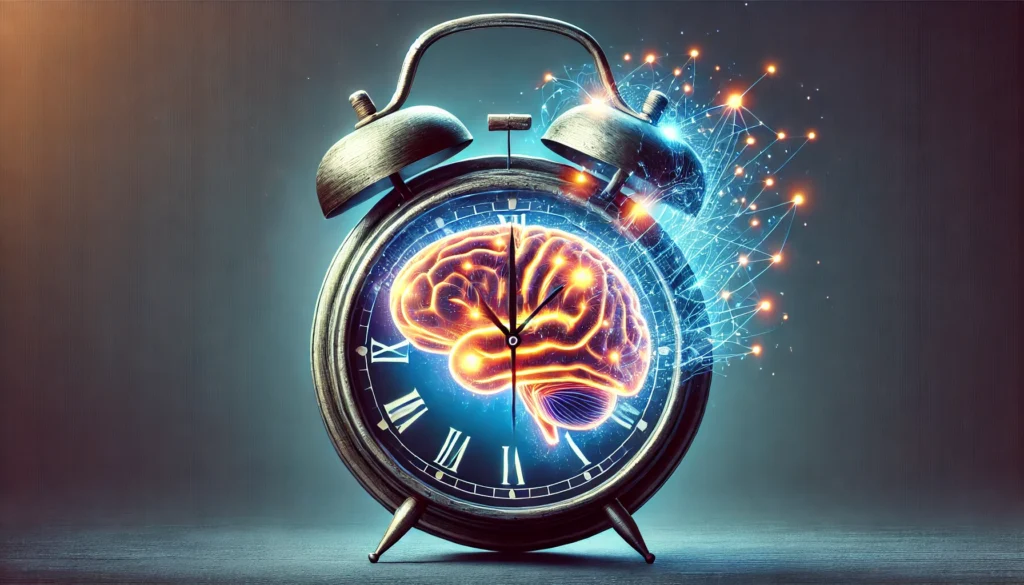Sleep is not merely a period of rest but a vital time for the brain to process information, consolidate memories, and prepare for future learning. This connection is not a recent discovery; historical insights have long emphasized the importance of sleep in cognitive function.
You may also like: Understanding the Science Behind Lost Memory
Historical Perspectives on Sleep and Memory
Throughout history, many cultures have recognized the importance of sleep for mental acuity. Ancient philosophers, such as Aristotle, contemplated the role of sleep in cognitive processes. Traditional practices in various cultures often included rituals or routines aimed at promoting restful sleep, emphasizing its perceived importance for mental and physical health.
In more recent history, the advent of modern psychology brought about a deeper scientific inquiry into sleep. Early sleep research laid the groundwork for understanding its critical role in memory and learning. These investigations revealed that sleep is essential not only for physical restoration but also for mental rejuvenation.
Sleep Stages and Their Functions
Modern neuroscience has delved into how sleep affects memory, revealing that different stages of sleep play unique roles in memory consolidation. During Rapid Eye Movement (REM) sleep, the brain is actively engaged in processing emotions and memories, integrating them into long-term storage. Non-REM sleep, particularly the deep stages, is crucial for declarative memory, which includes facts and knowledge.
Each sleep cycle consists of several stages, each contributing uniquely to cognitive functions. Light sleep stages facilitate the transition from wakefulness to rest, allowing the body to relax. Deep sleep stages are vital for physical recovery, while REM sleep is associated with dreaming and emotional regulation. This intricate orchestration of sleep stages ensures a balanced and effective memory consolidation process.
The Role of the Hippocampus
The hippocampus, a small seahorse-shaped structure within the brain, is central to this process. It acts as a temporary storage site for new information before it is transferred to the cortex for long-term storage. Sleep facilitates this transfer, reinforcing the neural connections that make learning and memory retention possible.
Research has shown that during sleep, particularly during slow-wave sleep, the hippocampus communicates with the cortex. This interaction strengthens synaptic connections, ensuring that newly acquired information is integrated into existing knowledge networks. The hippocampus’s role is not only crucial for memory storage but also for spatial navigation and contextual understanding, further highlighting its significance in cognitive processes.

Does Lack of Sleep Affect Memory?
Chronic sleep deprivation has been associated with significant memory impairment. It disrupts the brain’s ability to encode new information, leading to difficulties in recalling past events and learning new tasks. The lack of adequate sleep can also affect the brain’s plasticity, hindering its ability to adapt and form new connections.
Short-Term Effects of Sleep Deprivation
Research has shown that even a single night of insufficient sleep can lead to cognitive deficits. Individuals experiencing sleep deprivation may struggle with attention, decision-making, and problem-solving, all of which are essential for effective memory processing. This short-term impact can result in decreased academic performance, workplace errors, and impaired judgment in daily activities.
Moreover, sleep deprivation can alter mood and emotional regulation, contributing to irritability and stress. These emotional disturbances further exacerbate cognitive impairments, creating a vicious cycle that impairs memory and learning. Thus, understanding the short-term consequences of sleep loss is crucial for maintaining mental sharpness and well-being.
Long-Term Consequences of Chronic Sleep Deprivation
Chronic sleep deprivation can lead to more severe and lasting cognitive impairments. Studies have linked prolonged sleep deficits to increased risks of neurodegenerative disorders such as Alzheimer’s disease. The cumulative effects of inadequate sleep over time may result in permanent changes to brain structure and function, highlighting the critical need for regular, restorative sleep.
Additionally, chronic sleep deprivation can impact overall health, increasing the risk of cardiovascular disease, obesity, and diabetes. These health complications further compound the cognitive challenges associated with sleep loss, underscoring the importance of prioritizing sleep for both mental and physical health.
The Brain’s Plasticity and Sleep
The lack of adequate sleep can also affect the brain’s plasticity, hindering its ability to adapt and form new connections. Sleep is a crucial period for neuroplasticity, the brain’s capacity to reorganize itself by forming new neural connections. Without sufficient sleep, the brain’s ability to adapt to new experiences and learn from them is compromised.
This reduction in plasticity can have profound effects on learning and memory retention. Sleep-deprived individuals may find it challenging to acquire new skills or adapt to changes, impacting their personal and professional growth. Therefore, ensuring adequate sleep is vital for maintaining cognitive flexibility and adaptability.
Practical Tips for Enhancing Sleep and Memory
Given the intricate link between sleep and cognitive performance, prioritizing quality sleep is paramount. Here are some actionable steps to improve both sleep and memory retention:
Establish a Consistent Sleep Schedule
One of the most effective ways to enhance sleep quality is to maintain a regular sleep-wake cycle. Going to bed and waking up at the same time each day helps regulate your body’s internal clock, improving the overall quality of sleep. This consistency allows for the proper sequencing of sleep stages, which is essential for memory consolidation.
Creating a bedtime routine can further reinforce this schedule. Engaging in calming pre-sleep activities, such as reading or taking a warm bath, signals to your body that it’s time to wind down. Over time, these routines can help your body automatically prepare for sleep, enhancing the restorative benefits of a consistent schedule.

Create a Sleep-Inducing Environment
Your sleeping environment significantly impacts your ability to fall and stay asleep. Ensure your bedroom is conducive to restful sleep by keeping it cool, dark, and quiet. Consider using blackout curtains, earplugs, or a white noise machine to eliminate disruptive stimuli. An investment in a comfortable mattress and pillows can also enhance the sleep experience, promoting deeper, more restorative rest.
Additionally, removing electronic devices from the bedroom can help create a sanctuary dedicated to sleep. The absence of distractions encourages a peaceful atmosphere, allowing the mind to relax. Personalizing your sleep space with soothing colors and scents can also contribute to a more inviting sleep environment.
Limit Exposure to Screens Before Bedtime
The blue light emitted by electronic devices such as smartphones, tablets, and computers can interfere with the production of melatonin, the hormone that regulates sleep. Limiting screen time at least an hour before bedtime can help improve sleep quality. Instead, engage in calming activities such as reading a book, meditating, or practicing gentle yoga to signal to your body that it’s time to wind down.
Creating a digital curfew can help reinforce this habit. Designating a specific time each evening to disconnect from screens encourages a natural transition to bedtime. Over time, this practice can promote healthier sleep patterns, enhancing both memory retention and overall well-being.

Incorporate Relaxation Techniques
Stress and anxiety are common culprits of sleep disturbances. Incorporating relaxation techniques such as deep breathing, progressive muscle relaxation, or mindfulness meditation can help calm the mind and prepare the body for sleep. These practices reduce cortisol levels, promoting a state of relaxation conducive to falling asleep.
Exploring different relaxation strategies can help identify what works best for you. Whether it’s a guided meditation or a gentle stretching routine, finding a practice that resonates with you can enhance its effectiveness. Regularly incorporating these techniques into your bedtime routine can create a positive association with sleep, facilitating easier and more restful nights.
Further Reading:
Sleep’s Crucial Role in Preserving Memory
Important Note: The information contained in this article is for general informational purposes only, and should not be construed as health or medical advice, nor is it intended to diagnose, prevent, treat, or cure any disease or health condition. Before embarking on any diet, fitness regimen, or program of nutritional supplementation, it is advisable to consult your healthcare professional in order to determine its safety and probable efficacy in terms of your individual state of health.
Regarding Nutritional Supplements Or Other Non-Prescription Health Products: If any nutritional supplements or other non-prescription health products are mentioned in the foregoing article, any claims or statements made about them have not been evaluated by the U.S. Food and Drug Administration, and such nutritional supplements or other health products are not intended to diagnose, treat, cure, or prevent any disease.


